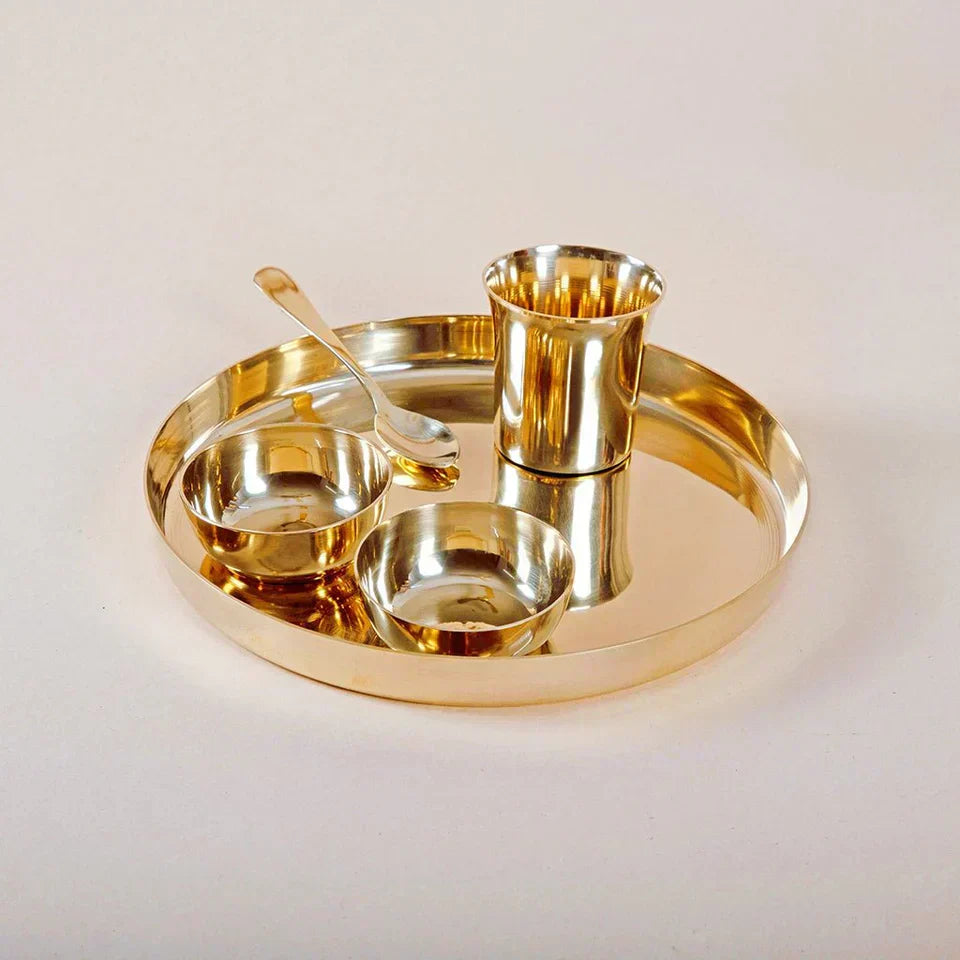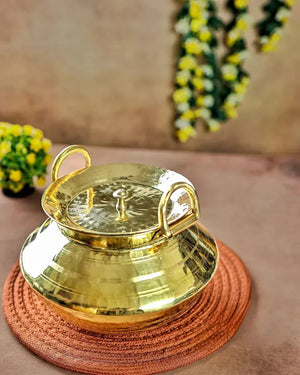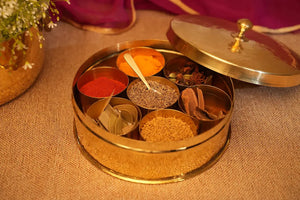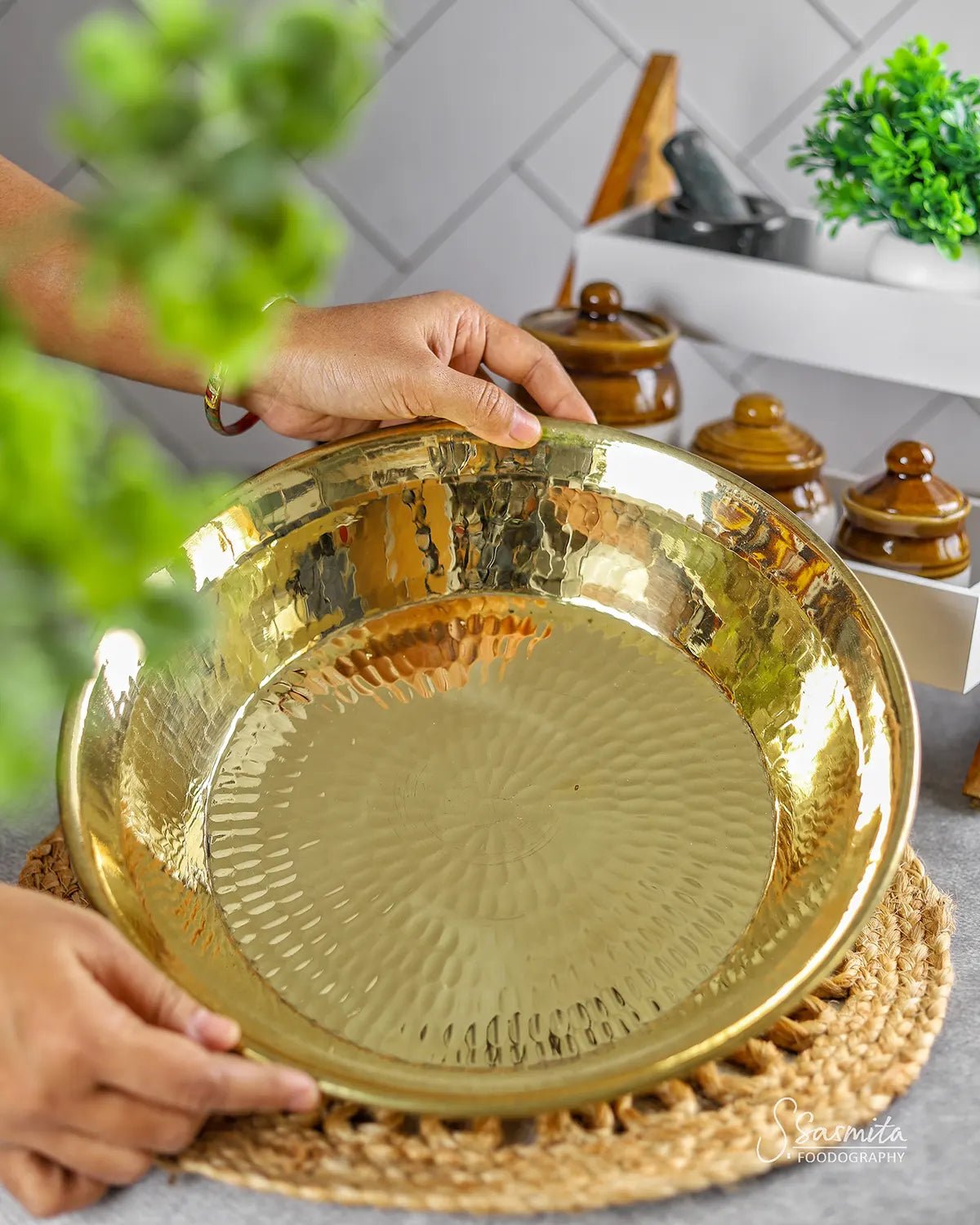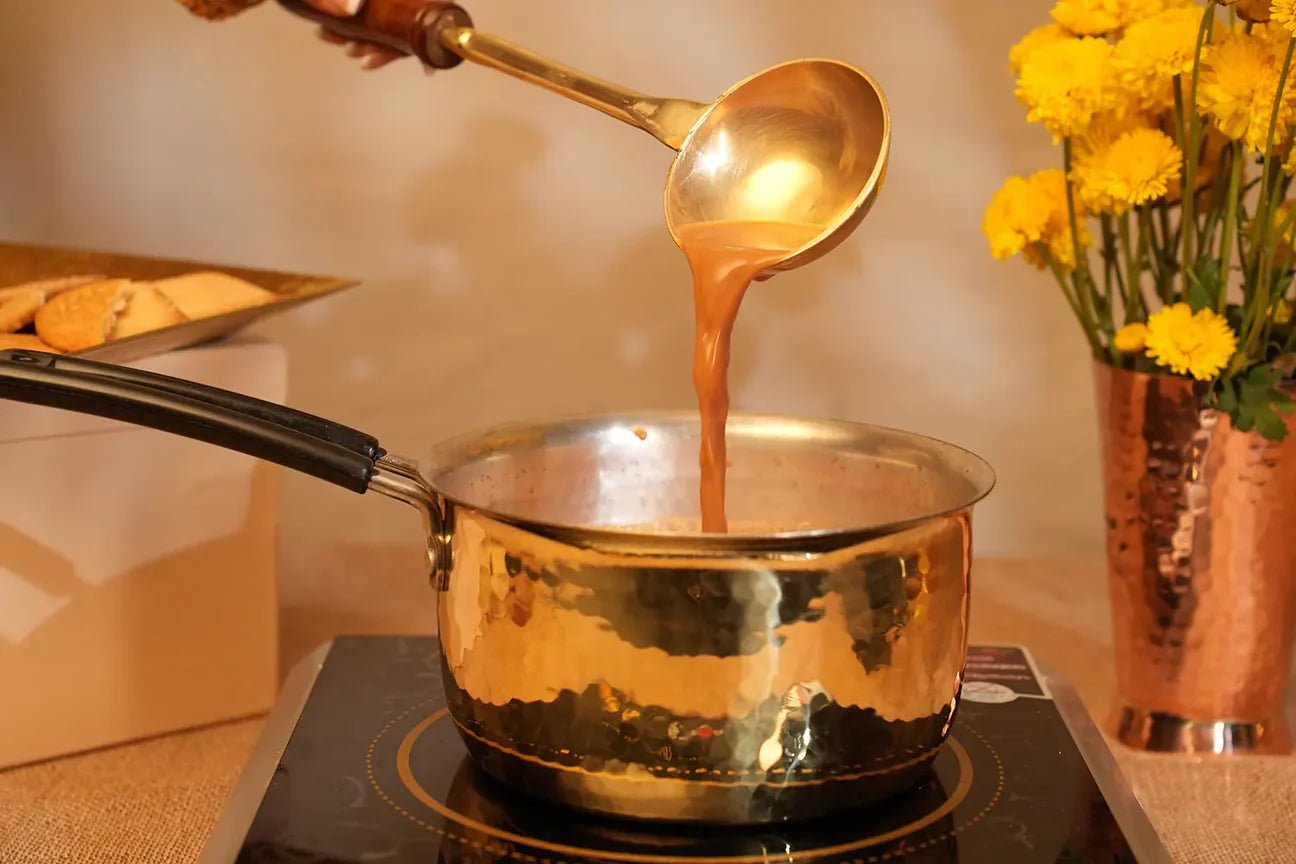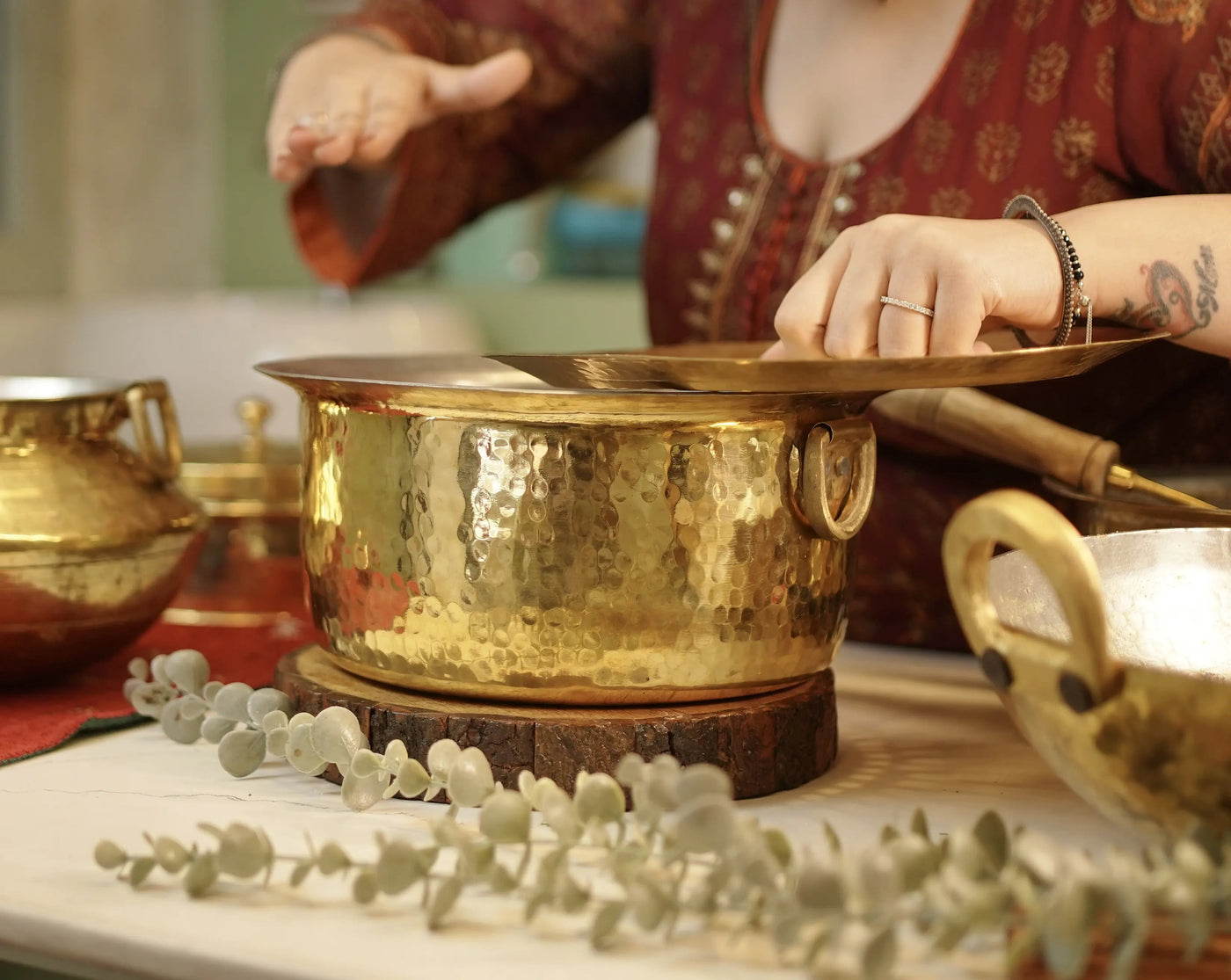In India the traditionally-made cookware as well as serveware are inextricably linked to wellness, culture and tradition. One of the most sought-after choices for tableware include Kansa Thali Sets and Brass Thali Sets each renowned for their attractiveness and alleged health benefits. But when it comes down to choosing the best option for the health of your entire family, which really stands out?
Let's examine the distinctions in Kansa and Brass as well as their benefits for health and tips for deciding the ideal thali set your home.
Understanding the Materials: What Are Kansa and Brass?
Kansa can be described as a form of bronze created of 78% copper and 22 percent Tin. It is considered to be one of the purest forms of metal in Ayurveda which has been extensively used in Indian homes.
Brass On the contrary is an alloy made consisting of zinc and copper. It's also been used since the beginning of time and is renowned for its gold-colored shine as well as its durability and antibacterial qualities.
Recommended Serveware: The Ayurvedic Benefits of Eating in a Kansa Thali Set (5-Piece Combo)
Health Benefits of Kansa Thali Sets
-
Adjusts for between the Doshas
In accordance with Ayurveda Eating in Kansa Thali Sets will help to balance the body's doshas, namely Vata, Pitta, and Kapha helping to improve digestion and overall health. -
Enhances gut health
Its alkaline properties of Kansa aids in reducing acidity and encouraging improved gut health. -
Improves immunity
Tin and copper, which are the primary elements of Kansa are believed to strengthen the immune system by enhancing the process of cell renewal. -
Effective in detoxifying
Kansa can aid in flushing out toxins after eating food frequently.
Health Benefits of Brass Thali Sets
-
Antibacterial properties
The Thali sets made of brass are known to ward off harmful microbes and keep food items safe to eat. -
Improves digestion
Similar to Kansa and brass, brass also offers digestive benefits because of its content of copper. It assists in regulating the bowel movements and improves metabolism. -
Strengthens joints
The zinc found in brass could contribute to better joint and bone health when employed consistently over time. -
Boosts Hemoglobin Concentrations
The use of brass tools could contribute to a higher copper intake and play a part in the formation of red blood cells along with iron absorption.
Taste and Aesthetic Appeal
Both sets of thali offer the rustic and royal dining experience, however their physical and sensory experience differs.
-
Kansa Thali sets usually are offered with a darker bronze color, with matte finishes.
-
Thiali sets made of brass sparkle with a golden color and give a warm and festive look for your dinner table.
If you're seeking an antique look with deep roots in the culture, Kansa might be your choice. If you want a regal, glossy appearance, brass steals the show.
Which Is Easier to Maintain?
-
Kansa Kansa is low-maintenance, and it will keep its appearance by regular washing.
-
Brass tends to age and tarnish over time. It requires frequent polishing to keep its shine.
They are not dishwasher safe and must be washed by hand with mild detergents.
Who Should Choose What?
Select Kansa Thali Sets If:
-
You practice Ayurvedic practices or you are a fan of holistic health.
-
You're looking for long-term digestive and immune benefits.
-
You want low maintenance and a classic style.
Select Brass Thali Sets If:
-
You're interested in antibacterial properties as well as longevity.
-
You'll love the shiny, bright look at your table.
-
You're looking for a traditional, cost-effective alternative.
Recommended Serveware: How to Spot an Original Copper Water Bottle: 7 Proven Tips
Conclusion:
When you are comparing Kansa Thali sets in comparison to Brass Thali Sets Both offer amazing health benefits that originate from Indian tradition. But if your goal is Ayurvedic well-being detoxification, cleansing or digestion, Kansa can be the best option. If you're more concerned with the appearance, cost, and the safety of antibacterial products, brass is a good alternative.
In the end, both are steps towards sustainability and mindful and healthy living. It's an improvement over plastic or stainless steel.


